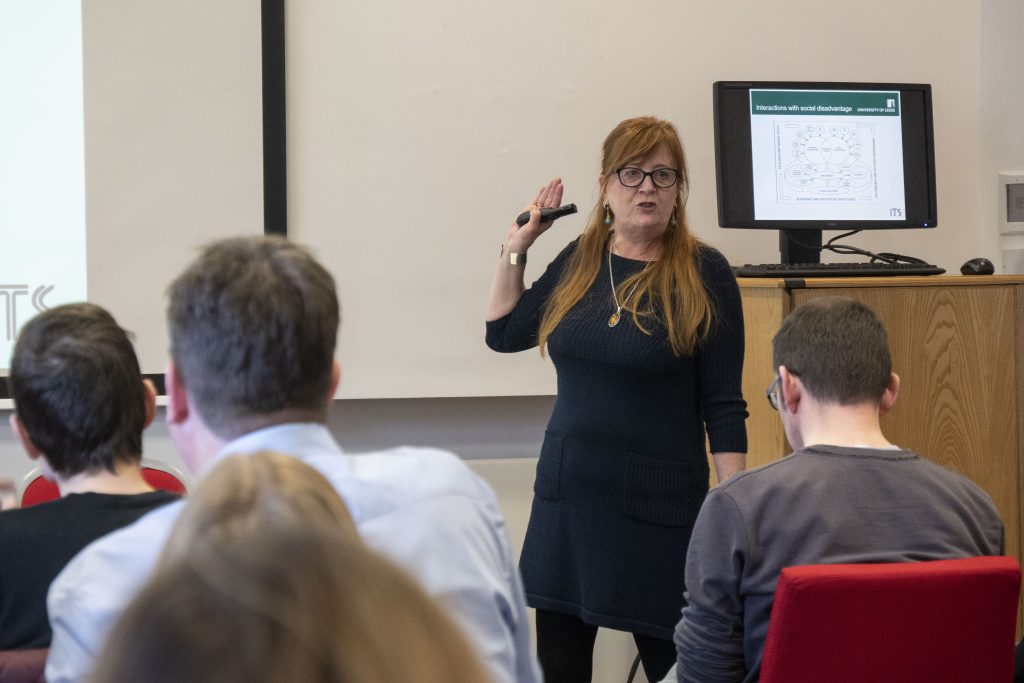Karen Lucas – Inequalities in Mobility and Access in the UK
Date – Friday 29th November 2019
Location – The Old Fire Station, University of Salford
Professor Karen Lucas is from the Institute of Transport Studies at the University of Leeds and spoke about her recent report: Inequalities in Mobility and Access in the UK, produced in collaboration with her colleagues Gordon Stokes, Jeroen Bastiaanssen, Julian Burkinshaw .
Our transport system is not universally accessible. Depending on where you live, transport times can cost too much and take too long, which has knock-on effects when it comes to commuting, or trying to find work. Our dependency on the car has also created adverse conditions for walkers and cyclists – something we are now trying to rectify in crowded urban environments. Social disadvantage and transport disadvantage are not mutually exclusive, but they do overlap, and it is in the middle where you find transport poverty. We need bold political structures and individual will to change transport behaviour, as well as better management of transport networks outside of populated urban centres.

Report Findings
Karen and her team carried out a rapid synthesis review of existing literature on current mobility and accessibility inequalities, as well as a basic trend analysis of multiple national surveys, with some qualitative expert evaluation of the likelihood of future mobility and accessibility scenarios in the UK until 2040. They found 150 relevant articles looking at social impacts of recent transport innovations. They found positive narratives around older people and people with disabilities (through assistive technologies & reduced social isolation), women (participation & inclusion), young people (MaaS & Shared Mobility Services), and optimistic narratives around rural areas – AV services could improve accessibility. While most UK-focussed articles are speculative with little empirical evidence. Many US studies focusing on the current uptake of AVs and services identified their core audience as young, white, and educated.
As always the Q&A was a lively session, with questions covering new proposals for rail links, the GM bus service, age-friendly travel fares, cyclists and their use of the pavement during an absence of infrastructure, multi-modal journeys and the difficulties in challenging individual car use. It is important to note that when it comes to transport systems and service change at the local level, the needs of all social groups have to be identified to know who will benefit, and how.
Additional information / resources
Download the full report: Inequalities in Mobility and Access in the UK